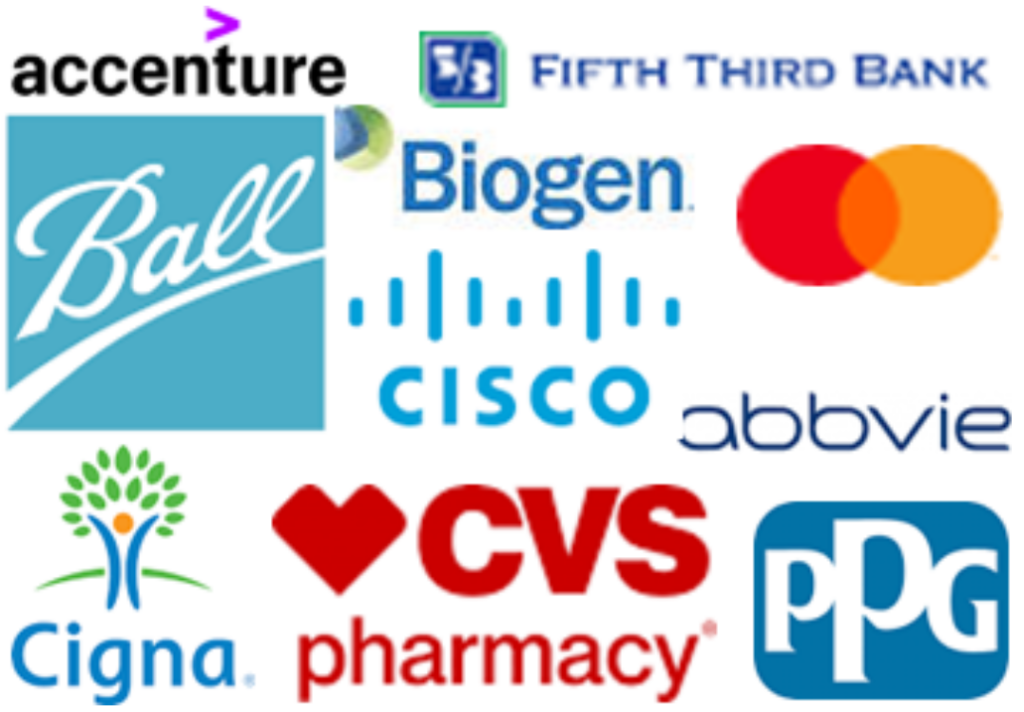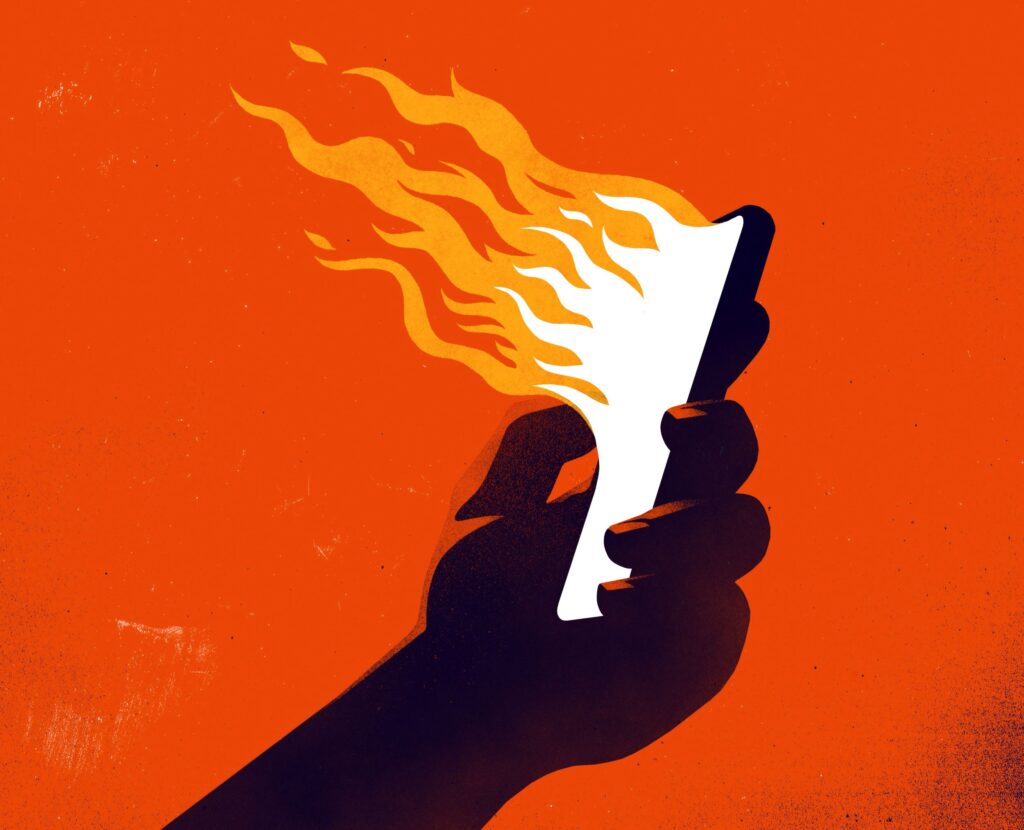July 28, 2022 UPDATE – Through our advocacy and research, JLens has identified ten companies that have scored highly based on our recommended best practices.
AbbVie (ABBV)
AbbVie has a strong commitment to religious coexistence, as demonstrated by their very active ERGs and Company Communities. Recently, a Jewish Resource Committee was formed, which has already sponsored listening sessions and faciliated a communication sent out by AbbVie’s Chief Equity Officer about AbbVie’s strong stance against anti-semitism. This group has received an outpouring of support from Jewish employees as well as other employees at AbbVie. Additionally, AbbVie has put in place various best practices, like multi-faith prayer rooms across company offices.
Accenture (ACN)
Accenture provides technology, business and management consulting. The company maintains an active blog about religious coexistence, called Belief without Borders. Accenture exemplifies religious workplace inclusion with its Interfaith Employee Resource Group (ERG). As the company reported to JLens, “We have an interfaith employee resource group that is very powerful. Every religious alignment represented, including self-proclaimed atheists, and this group comes together to talk about commonalities and differences within the ERG.” Accenture offers generous PTO to employees as well as an additional floating holiday. Across its offices, Accenture ensures that dietary restrictions are accommodated for in its cafeteria and kitchen facilities and there are prayer and wellness spaces available.
Ball Corporation (BLL)
Ball provides metal packaging for beverages, foods and household products, as well as aerospace products and services. Ball Corp has served as a catalyst for creating Business Resource Groups within the company, including the active CARE multifaith Business Resource Group, “which seeks to promote and maintain awareness of the different religious cultures of Ball employees to improve inclusiveness and increase workplace diversity.” As primarily a manufacturing company, Ball does have a dress code, but this policy includes accommodations for religious requirements, such as beards or head coverings. The company also has prayer rooms globally, as well as food in all of its facilities that meet employees’ religious dietary requirements, and an internal portal called “Ball Connect” where employees can access holidays off as requested. Employees are all required to complete an ethics and compliance training which specifically includes religious discrimination. Additionally, Ball has implemented various professional, career retention leadership, and welcoming groups to retain and recruit diverse employees.
Biogen Inc (BIIB)
Biogen is a biotechnology company that produces various drugs used in the treatment of neurological diseases. Biogen is committed to providing kosher- and halal-certified food to employees who request it, and each of its offices has a Reflection Room which employees can use for prayer. The company offers four floating holidays to employees. Additionally, Mosaic, an active Employee Resource Group, is dedicated to celebrating multiculturalism and engages in interfaith work. Biogen remains committed to looking at diversity of patient populations so that they can continue to improve health outcomes in the disease areas they treat. To enhance clinical trials and drive health equity, Biogen is partnering with faith leaders in local communities.
Cigna (CI)
Cigna is an insurance and healthcare company. Cigna demonstrates a number of best practices around religious coexistence, including prayer and wellness rooms throughout their offices. Cigna has a publicly-communicated Dress for Your Day policy, and as a result of JLens’ advocacy efforts, Cigna made explicit that this policy applies to employees who seek to dress according to their religious imperatives. In 2019 Cigna launched UpLift, an interfaith Employee Resource Group focused on increasing awareness of faith-based resources at the company and creating an inclusive community for people of all faiths. Cigna mandates unconscious bias training for all employees.
Cisco Systems (CSCO)
Cisco develops and manufactures technology services and products. Cisco offers reflection rooms across campuses that are intended for quiet reflection or prayer and are available to all employees as well as contingent workers and guests. Additionally, spaces for prayer and reflection are available at large annual company events. The company offers two floating holidays and has kosher, vegetarian, and halal food in its cafeterias. Cisco has an active Interfaith Network that aims to celebrate, educate, support, and respect the inclusion of employees of all faiths. The company has a zero-tolerance policy on disrimination, and Cisco representatives shared that “as people continue to be unfairly targeted for their race, orientation, beliefs and other factors, we take a stand and speak out to support our people inside and outside the workplace.” Cisco also has a demonstrated commitment to using its business operations to foster peacebuilding and coexistence, which JLens featured in the 2020 Jewish Impact Investing Summit.
CVS Corporation (CVS)
CVS Health, a healthcare company, shared its commitment to religious coexistence with JLens as “ingrained in our Diversity, Equity & Inclusion policies, practices and programs.” CVS offers employees 2-4 floating holidays (on top of core holidays), has a uniform dress code that provides accommodations for religious beliefs, and makes available kosher, halal, and vegetarian meal options at corporate cafeterias and events. The company has an active, 3,000-member faith-based employee resource group known as FAITH. Every year, the group hosts a webinar for the CVS Health Merchandising Team to promote understanding of how religious differences affect employee/customer relationships, as well as other trainings specific to healthcare about how religion plays a role for patients in terms of acceptance of drugs and dietary requirements. The company also has a nondiscrimination commitment that prohibits profiling customers and suppliers based on religious identity, and mandates unconscious bias training for all employees.
Fifth Third Bancorp (FITB)
Fifth Third Bank encourages religious coexistence through its support of local groups and partnerships with the communities in which it operates. The company provides dedicated prayer and wellness rooms that are available to employees without reservations, and kosher, halal, and vegetarian food at its cafeterias. Fifth Third explicitly directs managers to make reasonable accommodations for dress directly related to employees’ religion, ethnicity, or disabilities. As of July 2020, Fifth Third launched mandatory unconscious bias training and included this training as part of its onboarding program.
Mastercard Inc (MA)
Mastercard is a global financial services company that has demonstrated a deep commitment to religious coexistence. The company stands out with its Inclusive leadership training to address underlying bias for all 20,000 employees. Mastercard has a flexible workplace dress policy, and the company’s CEO, a Sikh, wears a turban and religious jewelry, setting an example of religious dress inclusivity. The company has a flexible PTO policy to accommodate religious holidays, and provision of five days of personal time off aside from vacation. There is also a robust selection of vegetarian, kosher, halal, or vegan food in the company’s cafeterias, and when there is food at workplace events dietary preferences are taken into account. Additionally, Mastercard offers “huddle rooms” for private reflection or prayer in all of its offices.
PPG Industries (PPG)
PPG is a global supplier of paints, coatings, optical products, and specialty materials. Recently, the company added additional floating holidays (three in total), has outlined policies that allow employees to dress in accordance to religious imperatives, and is exploring moving forward with a faith-based ERG. Headquartered in Pittsburgh, PPG was close to the scene of the Tree of Life synagogue shooting. PPG’s CEO and Chairman, Michael McGarry, sent a message to all employees expressing support for the Pittsburgh Jewish community as well as a donation to the affected community.




